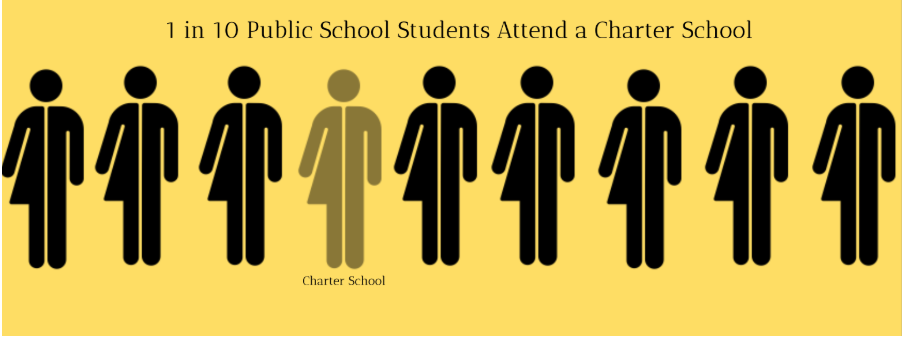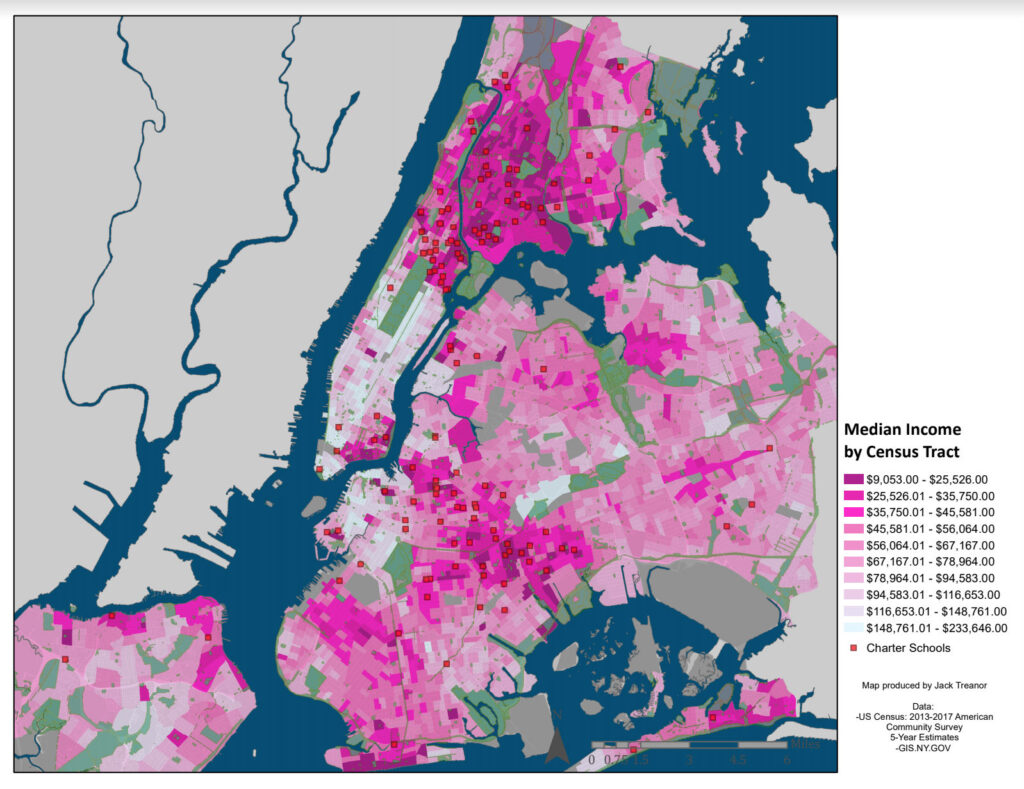The ‘Talented’ Tenth: Charter Schools as Choice for Those Without One
Seconds after leaving a family gathering, I instinctively texted Zaymira, “Someone just called me a genius, and I’m shook.” A few minutes before, Jason gave me this virtuous title and implored me to, share the wealth. He repeated these statements and each time his words etched deeper into my psyche. I was utterly confused about how he had come to these brash conclusions. Keep doing what you’re doing. Five words that encompass one of the highest honors you will hear from a Black person. I listened to his words; intense academic motivation swept over me. You’re a genius.His blunt statements hit me on multiple levels, but I remained modest. I had one question: Who do I share this wealth with? As he listed possible candidates, the familial tie struck me: your cousin. His daughter, Melanique.
When I think about the differences between Melanique and my childhood, nothing comes to mind. So why did her father ask me, specifically,to share the wealth. If we came from the same circumstances: both poor African-American young women from the Bronx. I thought deeply, and realized Jason rooted wealth in my educational accolades, which can be accredited to my charter school education, but more broadly the choice my mother fought for me to have.
Charter schools are in my hood because it gives the parents of some poor Black and Latino/a student’s autonomy to choose an effective education for their children. However, many students are subject to their inadequate zoned school or on the waitlist for a ‘promising’ charter school, and this dichotomy is problematic. Students sit on the waitlists at these schools because they are sold as an opportunity they will set them on a path for success in the college of their choice. The contrast between the people in my neighborhood who go to zoned schools in comparison to charter schools, reproduces systems of hierarchy within my neighborhood. Some students have that opportunity to mobilize and others do not, charter schools grant only a tenth of public schools’ students’ potential access to the wealth, or an efficient education.
As long as America functions as a false meritocracy, some systemic stratifications within NYC public education (lotteries and waitlists) will prevail. While the long-term goal is to create equitable public schools that eliminate the need for charter schools, in the meantime, we have to take the critical literacy approach in NYC schools, where students learn through the lens for power relations in the world.

Figure 1: Ratio of public school students in charter schools.
72 of the 235 charter schools in NYC are in the Bronx, one of the poorest congressional districts in the nation. Consequentiality, but not inevitably, those who populate this space are the students who go to the charter schools. Therefore, a little over half of charter schools’ students are African American, over a third are Hispanic, but most painfully 81% are considered economically disadvantaged.Charter schools are an option beyond zoned schools for students in low-income communities of color. In my neighborhood, charter schools are viewed as a chance to earn an education beyond what, Latoya Speller, described as “the failing system that Zyaira would have been subject to in her zoned school.” But for the 123,000 students enrolled in NYC charter schools, there are another 52,700 students on a waitlist. These parents and their kids need access to the same opportunities that a select few of their neighbors have. Charter schools exist to give families a choice, but we have to think critically about why this choice it granted to a tenth of the students in the public-school system. As a result, those students typically have the opportunity to earn an education that will be generationally transformative, but equally deserving students do not have this same chance to mobilize. Therefore, I struggle to understand: why does the choice charter schools provide for students have to happen at the expense of reproducing systems of inequality within my community?
My mother did not want me to have the deficient public-school experiences she had. She tells me, “Now, I have more options for my daughter. She was not bound to her neighborhood. There were schools with a different perspective on teaching, and I had choices beyond just her academics. I could choose where I wanted her to go and obtain the life lessons and educational experiences she deserved.” Her reflection can be summed up into one word: choice. We had to rely on my school to grant me access to college and international trips, academic support, and civic engagement that exposed me to a world beyond the South Bronx. I won the lottery, but not everyone does. And because of this division, I am always reminded of the opportunity that I had and still have as a Black student at a charter school.
When I did not exceed expectations, I was reminded that there was a student on the waitlist praying for my seat and how I could be replaced before dismissal. It was not until college that I understood that their words were more than a threat to get me to abide by the rules. Instead, their words were remnants of Jason’s plead. According to NYC Charter School Center, in the 2018-2019 school year, there were only 26,900 available seats for the 76,900 applicants looking for an opportunity at a charter school.Charter schools tend to preference siblings, creating a small bubble of Black and Latina/o students who will enter the gate, that the keepers watch closely.
Stacy J. Lee poses the idea, “…processes of racialization are not neutral acts of categorization, but acts of power, which aim to delineate who is White and who is not, and therefore who qualifies for the privileges linked to Whiteness.” Education is not synonymous with whiteness, but it is indisputable that the education system is dominated by whiteness. Charter schools have a network that give its students access to the world that is dominated by a white-standard. Lee’s ideas can be used to reconsider what it means for racialization to take place even in a Black and Latino/a community, but most poignantly the role charter schools play furthering the stratifications produced by power relations.
In order to address these stratifications, we have to address the disservice all NYC public schools are doing by not teaching through a lens of critical literacy. It will take time, organizing, and grit to abolish the faulty system. But for now, as Anderson and Irvine explain, kids must “[learn] to read and write as part of the process of becoming conscious of one’s experience as historically constructed within specific power relations.”Students need to scrutinize texts that make think about why they are inherently susceptible to an inadequate education. Or, why some students have access to opportunities and others do not? We must implement structural changes in the K-12 curriculum that allow students to confront the harsh realities of the world they are affected by. The hegemony does not wait to become familiar with the students and define their fate; therefore, students should wait to become familiar with the systems. The answer is not to dismantle charter schools, but instead to give students this chance to question their positionality in the world.
My family always played the lottery. All they wanted was some of the wealth, so they put their faith in the lottery hoping to get a piece of it. Somehow, we have to gamble for a comprehensive education the same way they gamble for money. Black and Latina/o people have placed their fate in the hands of the oppressor since the beginning, but if we want to start to redefine these barriers, we have to teach through critical literacy.

By: Zyaira